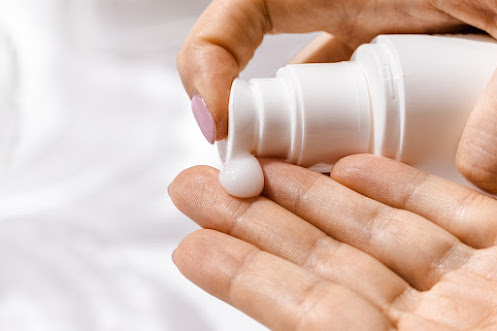Hydroquinone Market: Unveiling the Latest Trends and Growth Opportunities
Hydroquinone, often referred to as HQ, is a chemical compound with a wide range of applications in various industries. It is an aromatic organic compound, primarily used for its antioxidant and skin-lightening properties. In recent years, the hydroquinone market has witnessed significant growth, driven by its expanding use in cosmetics, photography, and the polymer industry. This article explores the key aspects of the hydroquinone market, including its uses, market trends, growth drivers, challenges, and future prospects.
Applications of Hydroquinone
Cosmetics and Skincare: One of the primary applications of hydroquinone market is in the cosmetics industry. It is commonly used in skincare products to treat skin conditions such as hyperpigmentation, melasma, and age spots. Hydroquinone's ability to inhibit melanin production makes it a popular choice in skin-lightening creams and lotions.
Photography: Hydroquinone plays a crucial role in photography as a developing agent. It is used to reduce exposed silver halide crystals into metallic silver, forming the image on photographic paper or film. Despite the digital revolution, traditional photography still relies on hydroquinone for its unique properties.
Polymer Industry: Hydroquinone is used in the polymer industry as an antioxidant. It helps prevent the oxidation and degradation of polymers such as plastics, rubber, and resins, thereby extending their lifespan and maintaining their quality.
Chemical Intermediates: Hydroquinone serves as an important chemical intermediate in the production of various compounds, including pharmaceuticals, dyes, and agrochemicals. Its versatility in synthesis processes makes it a valuable component in chemical manufacturing.
Market Trends
The hydroquinone market has witnessed several notable trends in recent years:
Increasing Demand for Skin-Lightening Products: The demand for skin-lightening and anti-aging products has been on the rise, especially in Asia and Africa. This trend is propelling the growth of the hydroquinone market, as the compound is a key ingredient in many of these products.
Growing Cosmetics Industry: The cosmetics industry is experiencing rapid growth, driven by changing consumer preferences, increased disposable income, and a desire for personalized beauty solutions. Hydroquinone's role in addressing skin-related concerns has made it a sought-after ingredient in cosmetics formulations.
Environmental Concerns: Environmental and health concerns related to the use of hydroquinone have led to increased research and development efforts to find safer alternatives. This has influenced market dynamics and encouraged the development of eco-friendly products.
Regulatory Changes: Various countries have imposed restrictions on the use of hydroquinone in cosmetics due to its potential side effects. Manufacturers are adapting to these regulatory changes by reformulating their products to meet safety standards, which has implications for the market's future.
Growth Drivers
Several factors are driving the growth of the hydroquinone market:
Skin Care Awareness: Increasing awareness of skincare and a growing desire for youthful and radiant skin are boosting the demand for hydroquinone-based products, particularly in regions where skin-related issues are prevalent.
Technological Advancements: Ongoing research and development efforts have led to innovations in hydroquinone formulations, making them more effective and safer for consumers.
Emerging Economies: Rapid urbanization and a burgeoning middle-class population in emerging economies are contributing to increased consumer spending on skincare products, positively impacting the hydroquinone market.
Challenges
Despite its growth potential, the hydroquinone market faces several challenges:
Safety Concerns: Hydroquinone has been associated with potential health risks, including skin irritation, allergic reactions, and long-term skin damage when used in high concentrations. Regulatory agencies in some countries have imposed restrictions on its use in cosmetics, limiting market growth.
Environmental Impact: The production and disposal of hydroquinone can have adverse environmental effects. As environmental awareness grows, manufacturers are under pressure to adopt more sustainable practices.
Alternative Ingredients: The search for safer and more effective alternatives to hydroquinone is ongoing, and the market may face competition from newer ingredients in the future.
Future Prospects
The hydroquinone market demand is expected to continue growing, driven by the increasing demand for skincare products and cosmetics. To sustain this growth, manufacturers must invest in research and development to improve the safety and efficacy of hydroquinone-based products. Additionally, eco-friendly and sustainable practices will be essential to address environmental concerns and meet changing consumer preferences.
In conclusion, the hydroquinone market is experiencing growth across various industries, with skincare and cosmetics leading the way. While challenges related to safety and environmental impact exist, ongoing innovation and regulatory compliance efforts are likely to shape the market's future positively. As consumer awareness of skincare and beauty products continues to expand, the hydroquinone market is poised for further expansion and diversification in the years to come.
For more reports;
Xylitol Market
Indian Vegan Food Market
Natural Sweeteners Market
Meso-Erythritol Market



.png)
Comments
Post a Comment